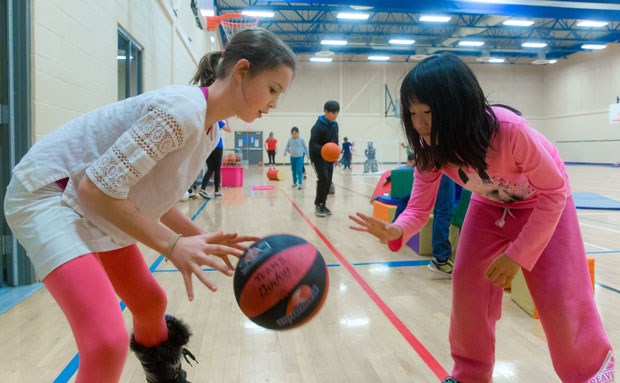As a confessed basketball bandwagoner, I watched the NBA Finals game in awe.
I had forgotten about the unified excitement of watching traditional team sports - the thrill of anticipation, and the rush of a win. The devastation of a loss, and the roller coaster of emotions that are tied to the unknown fate of a favoured sports team.
I worked in professional sports for years and my personal and professional lives were heavily influenced by a team’s performance. After a career change, my focus shifted and I stopped watching sports altogether. But while I no longer had the regular thrill of professional sports in my life, I had my children’s soccer games, and sports days, to keep that thrill alive.
When my oldest was in her second year of elementary school, I was dumbfounded when I heard that sports day had become a non-competitive “day of fun.” Ribbons were awarded to every student equally, and participation was not mandatory. The activities had veered away from the potato sack races, egg-balancing runs, and obstacle course challenges that I had enjoyed as a child. Instead, activities included face painting, shaving balloons, and tossing bean bags into rings. And I wondered: when had sports day evolved from an action-packed day of healthy competition, to a low-budget carnival without the fun rides?
I know as a parent, it can be heart wrenching to see our children upset. Children respond differently to winning or losing in competitive situations, and their behaviour as a result can sometimes be a challenge. But is it fair to avoid celebrating the success of those children who thrive in an active environment because we’re afraid of hurt feelings?
Children receive grades based on their performance in class, and while some excel at subjects such as math and science, others just don’t have the same academic abilities. Why is it OK to celebrate children who achieve academic success in school, but kids who excel at physical sports don’t get the same positive reinforcement?
Competition should not be regarded as a bad word. Instead of avoiding competitive situations, we should be embracing the opportunity to teach our children important life lessons, like the value of teamwork, and how to cheer on their peers. We should teach our children how to deal with failure when they don’t win, and how to be confident without being cocky when they do.
Scoreless sports aren’t fooling kids - they’re smarter than we think. Kids know whether their team is winning or losing, and they can tell when someone is faster, stronger, or more agile than they are on the playing field. It’s a life skill for kids to learn how to win and lose gracefully, and by taking those skills away, an important life lesson is lost.
Although it would definitely make life easier for us parents, the fact is, children are not all the same. Each child is unique, with their own special talents. Some are mathematicians, some are born comedians, some are future Olympians, and some are poets. We should be teaching them to embrace their differences, to celebrate their unique qualities, and to laugh when they fall. Because by avoiding failure now, we could be setting them up to fail in the future.
Bianca Bujan is a mom of three, writer, editor, and marketing consultant. Find her on Twitter @biancabujan and Instagram @bitsofbee.



